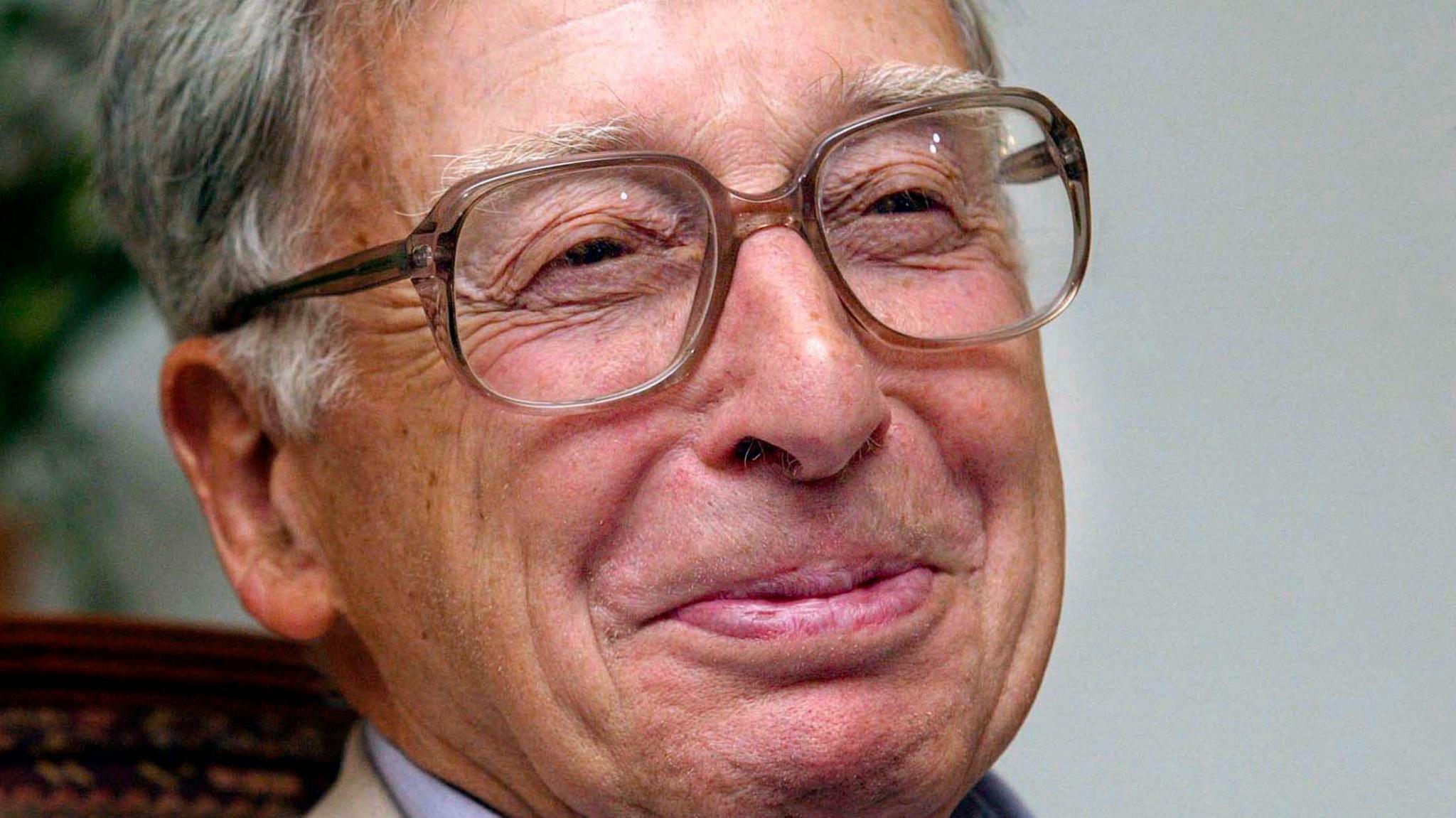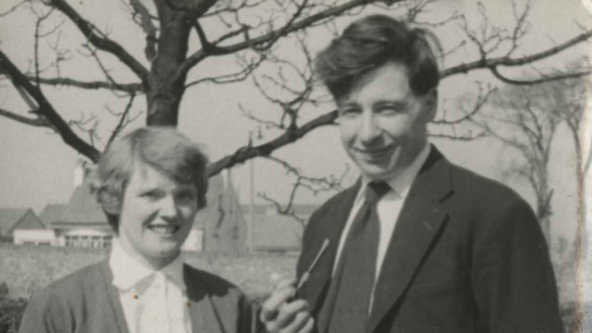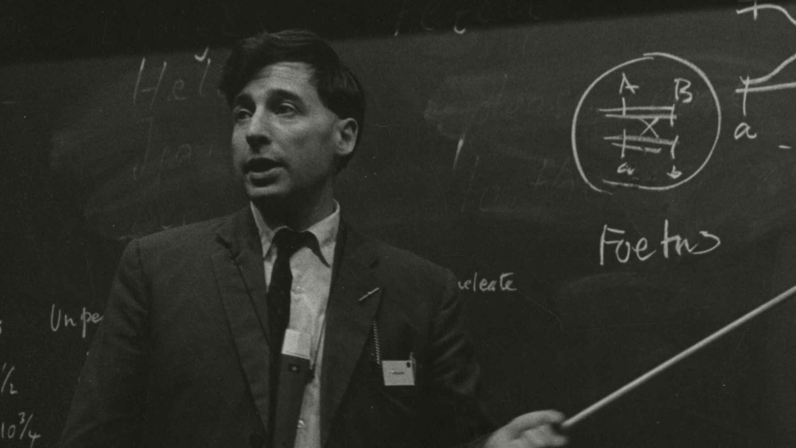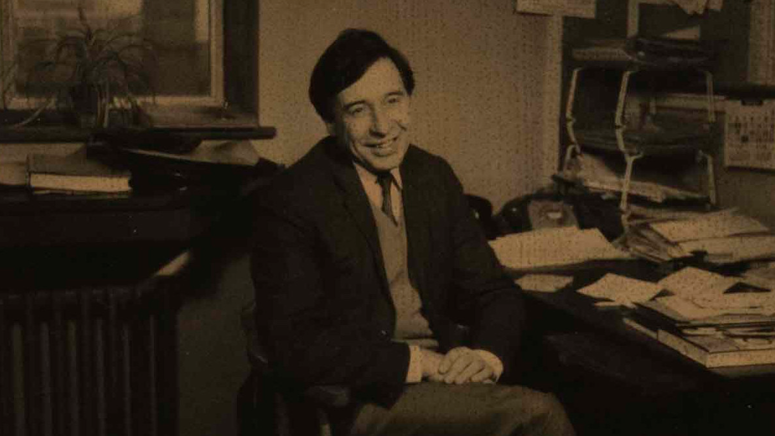IVF pioneer's birth celebrated 100 years on

Prof Sir Robert Edwards joined the University of Cambridge in 1963 and went on to win the Nobel Prize in 2010
- Published
The legacy of a Nobel Prize-winning scientist who pioneered in vitro fertilisation (IVF) is being celebrated ahead of what would have been his 100th birthday.
Prof Sir Robert Edwards will be remembered at the University of Cambridge physiology building, where he first fertilised a human egg in a test tube, later, ahead of what would have been his birthday on Saturday.
Prof Edwards, who died aged 87 in 2013, helped transform fertility treatment alongside Patrick Steptoe and Jean Purdy.
Since the birth of Louise Brown, the first IVF baby, in 1978 researchers believe more than 13 million children have been born using the technique.

Letters released in 2019 from Prof Edwards (right) showed he fought for Jean Purdy's (left) contribution to IVF to be published
Prof Edwards spent much of his career in the department of physiology at the university.
With gynaecologist Mr Steptoe and technician and embryologist Ms Purdy, he pioneered the technique of IVF, in which eggs are fertilised by sperm in a laboratory, creating an embryo that is transferred into a woman's womb.

Prof Edwards was born in Batley, West Yorkshire, in 1925 and served in the Army during World War Two
A two-part event will celebrate Prof Edwards' life and mark what would have been his 100th birthday.
It will feature scientific talks and clinical practice in the Physiology Lecture Theatre, where Prof Edwards fertilised a human egg in a test tube.
An evening panel discussion is open to the public at Churchill College, Cambridge, where Prof Edwards was a fellow from 1979 and member from 1974.
Among the panellists are Louise Brown, Dr Jenny Joy, one of Prof Edwards' daughters, Emma Barnett, a journalist and BBC presenter with a young IVF child, and Dr Mike Macnamee, former CEO of the world's first IVF clinic.

Prof Edwards joined the Marshall Lab, University of Cambridge Physiology Department, in 1963
Prof Kathy Niakan, director of the Loke Centre for Trophoblast Research, said scientists at Cambridge were continuing Prof Edwards' legacy.
"To be part of this field today is a unique opportunity for discovery and innovation, and a great honour to carry forward Sir Bob Edwards' vision in advancing our understanding of human reproduction," she said.
Dr Joy added: "Our family is delighted to be involved in this event, working with the Loke Centre... and Churchill College, which both meant a great deal to our father."
Get in touch
Do you have a story suggestion for Cambridgeshire?
Follow Cambridgeshire news on BBC Sounds, Facebook, external, Instagram, external and X, external.
Related topics
- Published10 April 2013
- Published4 October 2010
- Published14 March 2015